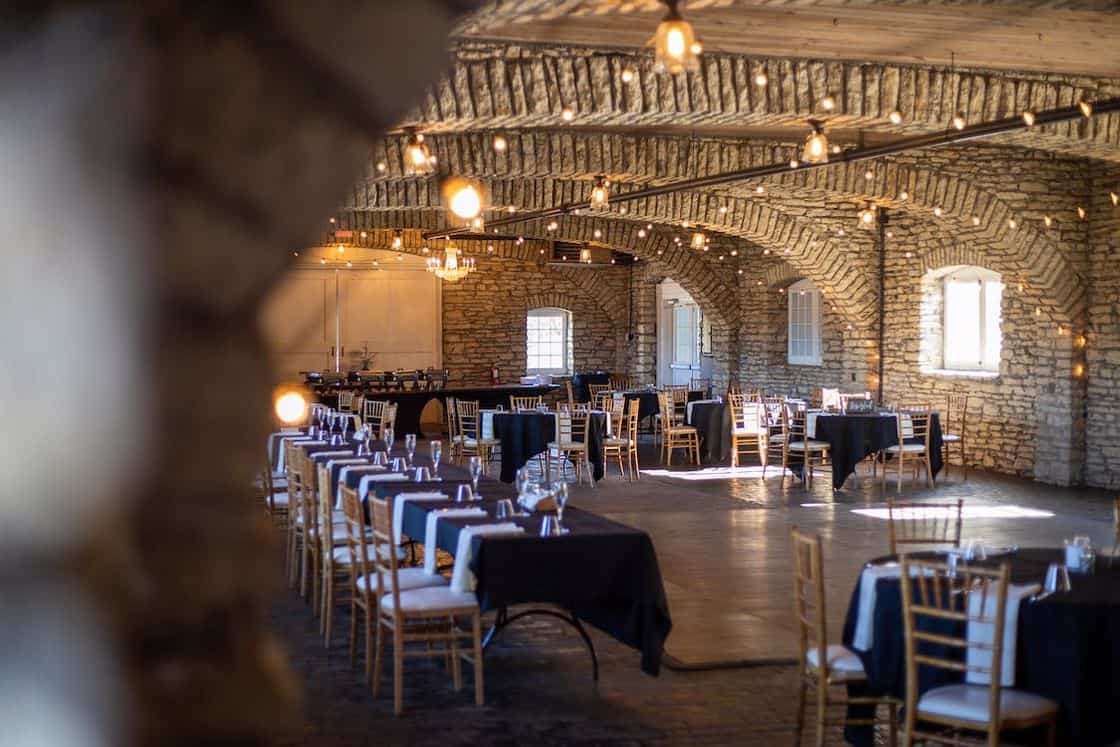Exactly How Event Production Works: A Comprehensive Take A Look At the Process
Event production is a complex and structured process that requires careful planning and execution. It starts with developing clear purposes and understanding the target market. Each action, from budgeting to place choice, plays a critical duty in making certain success. As the procedure unravels, different elements must straighten effortlessly. Yet, the subtleties of this elaborate operation often go undetected. What are the essential stages that add to an unforgettable event?

The Initial Drawing Board
When starting on event production, mindful preparation is important to ensure a successful result. The first preparation phase functions as the foundation for all subsequent efforts. During this phase, event producers need to specify the event's objective and purposes clearly. Determining the target market aids customize the experience and messaging, assuring relevance and engagement.Producers need to additionally consider the event format, whether it be in-person, virtual, or hybrid, as this will affect various logistical elements. Selecting an appropriate day and location is vital, as it affects availability and availability.Furthermore, constructing a reliable team is basic for separating responsibilities and improving communication. Establishing a timeline with milestones assurances all jobs are completed on time. This phase entails detailed study, consisting of determining potential obstacles and designing methods to reduce risks. Inevitably, a well-structured preliminary planning stage sets the tone for an effective event production journey.

Budgeting and Source Allotment
In event production, reliable budgeting and resource allocation are important for success - event production charlotte. Establishing economic parameters establishes the foundation for all succeeding decisions, while source distribution methods guarantee that every part of the event is effectively supported. With each other, these elements aid maintain control over expenses and enhance making use of readily available resources
Establishing Financial Parameters
Establishing economic parameters is crucial to the success of any kind of event production, as it sets the structure for reliable budgeting and resource appropriation. This process starts with defining the general budget, which includes all facets of the event, consisting of venue prices, catering, and advertising and marketing. By recognizing readily available funds, event planners can prioritize expenses and allot sources accordingly. On top of that, it is vital to perform detailed marketing research to anticipate possible prices and recognize funding sources, such as sponsorships or ticket sales. Developing clear economic specifications likewise aids in threat management, enabling organizers to allot contingency funds for unforeseen costs. Eventually, a distinct budget plan acts as a roadmap, assisting the event production group in the direction of attaining their objectives while keeping economic control.
Source Circulation Methods
Reliable source distribution techniques are necessary for taking full advantage of the effect of an event while adhering to budget restraints. Effective event production needs a careful method to budgeting and resource allocation. Planners have to focus on necessary aspects such as venue, event catering, and technology, ensuring that funds are allocated to locations that improve attendee experience. A detailed spending plan must describe anticipated expenses and recognize areas for potential price financial savings, such as working out with vendors or discovering sponsorship chances. Additionally, tracking expenses throughout the planning procedure assists prevent overspending. By using tactical source distribution, event manufacturers can provide a memorable experience while keeping fiscal duty, eventually adding to the general success of the event.
Place Choice and Logistics
Choosing the ideal venue is necessary to the success of any event, as it establishes the phase for the general experience. Place choice entails assessing different factors, including ability, ease of access, and area. Planners need to take into consideration the target audience and the nature of the event, making certain the venue lines up with the event's goals.Logistics play a significant function in this procedure, entailing arrangements for seating, audiovisual tools, and catering services. A well-chosen place should help with smooth circulation for guests and team, enhancing engagement.Additionally, evaluating prospective places for amenities like vehicle parking, toilets, and fire escape is necessary for safety and security and ease. The timeline for securing the venue is likewise vital, as preferred areas might schedule quickly - event production charlotte. Consequently, extensive preparation and prompt execution can eventually add to a smooth event experience, making location choice and logistics essential elements of successful event production
Imaginative Principle Growth
While the place establishes the physical phase, imaginative idea advancement shapes the event's identity and story. This procedure starts with recognizing the event's function and target audience, allowing event producers to create an engaging motif that reverberates with guests. Conceptualizing sessions typically include diverse perspectives, cultivating cutting-edge concepts that line up with the event's goals.Once a theme is developed, aesthetic aspects such as color schemes, signage, and design are designed to boost the general environment. Storytelling strategies may also be incorporated to produce an engaging journey for individuals, ensuring a memorable experience. In addition, considerations regarding amusement, activities, and interactive parts are lined up with the chosen idea, reinforcing the motif throughout the event.Ultimately, effective imaginative idea development assurances that every aspect of the event functions cohesively, leaving a lasting perception on guests and fulfilling the event's objectives. This fundamental work prepares for subsequent preparation and execution stages.
Teaming up With Vendors and Distributors
Successful event production depends upon reliable partnership with suppliers and suppliers. Choosing reliable partners, working out agreements effectively, and making sure prompt deliveries are important steps in this procedure. Each of these elements adds greatly to the general success and smooth implementation of an occasion.
Selecting Reliable Allies
How can event organizers guarantee a smooth production experience? Choosing reputable partners is vital in attaining this goal. Event coordinators must carry out thorough research to identify vendors and vendors with a tried and tested record of excellence. This includes checking recommendations, examining profiles, and reviewing consumer responses. Organizers need to prioritize partners that show professionalism, timely communication, and a readiness to team up. Structure this content solid partnerships cultivates count on and enables quick problem-solving during the event. Additionally, it is valuable to pick neighborhood vendors that recognize the place and local logistics. Ultimately, a successful event depends upon the harmony in between coordinators and their partners, ensuring that every aspect of production runs efficiently and effectively.
Working Out Contracts Effectively
Reliable settlement of contracts is a vital action in the partnership between event planners and their suppliers and vendors. This process entails clear interaction of expectations, deliverables, and timelines. Organizers must carry out complete research on market prices and market standards to establish a standard for arrangements. It is necessary to create a collective ambience, motivating open dialogue regarding terms, pricing, and prospective contingencies. Organizers ought to additionally focus on recognizing the supplier's capabilities and constraints to align their demands efficiently. Adaptability can result in equally useful arrangements, promoting lasting relationships. Crafting distinct agreements that include certain efficiency metrics can help ensure responsibility, inevitably resulting in effective event implementation and fulfillment for all celebrations entailed.
Making Sure Timely Distributions
Prompt distributions are necessary for the smooth execution of any kind of event, needing persistent collaboration between organizers and their suppliers and suppliers. Reliable communication is crucial, as it helps establish clear expectations relating to delivery routines, amounts, and details needs. Coordinators usually create in-depth timelines to describe crucial landmarks, making certain all celebrations remain straightened throughout the process. Regular check-ins with suppliers can help recognize potential hold-ups early, enabling proactive options. In addition, constructing solid partnerships with trusted vendors fosters count on and responsibility, which can result in better service and prioritization. By focusing on these collective initiatives, planners can decrease disturbances, consequently improving the total efficiency of event production and ensuring that all needed products and solutions show up as intended.
Marketing and Promotion Strategies
While arranging an occasion, the success of advertising and marketing and promotion strategies can considerably affect presence and involvement. Effective methods commonly include a mix of electronic marketing, typical advertising and marketing, investigate this site and grassroots outreach. Using social media platforms enables for real-time communication and targeted marketing, getting to specific demographics efficiently. Email advertising projects can further involve possible guests with customized web content and reminders.Collaborations with influencers or industry leaders can additionally enhance credibility and broaden reach. Producing interesting web content, such as videos or blogs, helps to produce buzz and sustain interest leading up to the event. In addition, leveraging early-bird price cuts and special rewards can incentivize ticket purchases.Promoting through typical channels, such as posters or regional media, stays pertinent, specifically in community-focused events. A thorough approach that incorporates several techniques guarantees optimum exposure and engagement, eventually adding to the event's success and the creation of a remarkable experience for guests.
On-Site Implementation and Management
On-site execution and management are important elements that establish the overall success of an event. Efficient coordination during the event assures that all elements straighten with the planned schedule. Event supervisors supervise logistics, including supplier sychronisation, devices setup, and guest solutions. Monitoring timelines and dealing with any type of unanticipated concerns are essential for maintaining a smooth experience.The team plays a substantial duty, as experienced personnel are accountable for different tasks such as enrollment, details circulation, and technical assistance. Communication amongst employee is necessary; it cultivates a joint environment and allows quick resolution of challenges.Additionally, security methods must be followed, guarding the wellness of all guests. Post-event analyses are likewise part of on-site administration, providing understandings for future renovations. By concentrating on these facets, event manufacturers can create memorable experiences that satisfy or go beyond attendee assumptions while attaining the event's objectives.
Frequently Asked Concerns
Exactly how Do I Select the Right Event Theme?
Choosing the right event motif involves thinking about the target market, event purpose, and venue. Looking into current trends and gathering input from stakeholders can additionally influence imaginative ideas that resonate and produce a remarkable experience.

What Are Typical Blunders in Event Production?
Typical blunders in event production typically consist of poor preparation, poor communication among group members, budget mismanagement, ignoring to take into consideration the audience's needs, and failing to perform a comprehensive post-event examination for future enhancements.
Just How Can I Determine Event Success?
To determine event success, one can examine guest complete satisfaction, engagement levels, spending plan adherence, and post-event comments. Key performance signs, such as ticket sales and social networks communications, also provide valuable understandings into overall efficiency.
What Should I Do if It Moistens the Event Day?
In case of moisten the day, the coordinator must execute backup strategies, such as securing outdoors tents or relocating tasks inside your home. Interaction with attendees about modifications is necessary to assure a smooth experience in spite of weather click here for more condition obstacles.
Just How Can I Ensure Attendee Interaction During the Event?

Comments on “Creative branding ideas executed by event production charlotte”